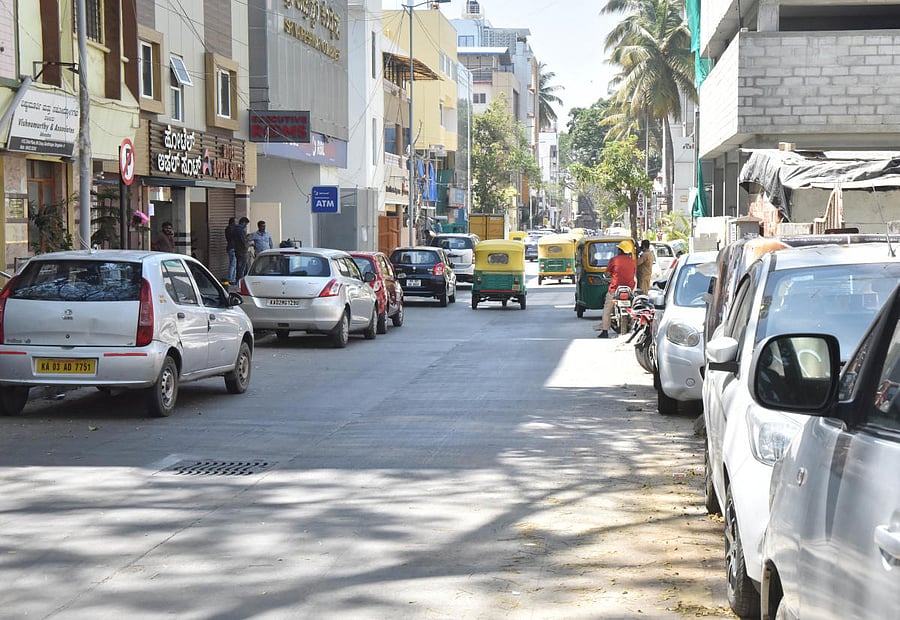
Citizens are mulling the implications of the government’s decision to charge car owners for on-road parking in front of their homes.
A new parking policy makes it mandatory for car owners to get parking permits from the BBMP.
“These permits simply give people the right to say they can park on the footpaths. People are going to rent out spaces in front of their homes to commercial establishments for Rs 5,000 a month, and pay Rs 5,000 for an annual permit,” says Prasad Shivarudrappa, a resident of Shanti Nagar.
The rules should either encourage people to dispense with their vehicles or build garages.
The permit model could create altercations between neighbours over parking, he fears.
Govt position
V Manjula, commissioner, department of urban land transport, says the permit to park on roads in residential areas simply gives car owners the right to park, but not the guarantee of a spot.
“People like to believe that the space in front of their homes also belongs to them, but that is not the case. The entire road cannot be a parking bay,” she explains.
The government plans to designate areas for parking. The penalty for parking without a permit or in a no-parking zone will be the same as before, at Rs 1,000.However, it will be a while before the policy is enforced. “We first have to prepare the area parking plan, where we identify the areas where parking zones can be established. We will take the opinion of stakeholders and the public when doing so,” she adds.
Poor oversight
Vinod Jacob, social activist, traces the problem to bad planning and lack of foresight.
“Many buildings in the city have no parking space. How did the BBMP approve their construction? How did they approve commercial buildings without parking?” he says.
Many government buildings are dump yards for old vehicles.
Abandoned vehicles must be audited and scrapped, Jacob suggests.
“We will have better parking in all government offices if these parking spaces are used properly,” he says.
Cab drivers, he suspects, will suffer the most. “Where will they park before their next ride?” he says.
However, with better planning, the paid parking system can allow for better traffic handling, discourage double parking, jay parking and other violations while creating revenue for the government, he says.
Congestion
Making parking on roads paid simply regularises something that is illegal, M N Sreehari, urban planner.
“The corporation gets money, but the problem of roadside parking and congestion remains,” he says.
He recommends multi-level car parks in each neighbourhood.
This allows for revenue collection while keeping the roads clear.
Underground spaces can be created beneath the parks, provided they are done without harming trees, Sreehari says. In the long term, a resident of Lavelle Road says, the answer is increasing reliance
on public transport and creating more parking space in commercial areas.
“Paid parking does not make sense in residential areas. Usually, it is commercial establishments that use up space in these areas,” says Shivkumar V Naidu, resident of Domlur.
The solution, he believes, is to create a parking system for commercial establishments, and to charge them accordingly.
Wallet factor
Annual fee for on-street parking:
Small car Rs 1,000
Medium-sized car Rs 3,000
MUV, SUV Rs 4,000
Residential parking permit, which allows citizens the right to park in designated spots in residential areas, costs Rs 5,000 a year.
Residents will be able to purchase parking permits on a quarterly or annual basis.
Who drafted it?
The Parking Policy 2.0 that the Karnataka Urban Development Department has approved was prepared by the Directorate of Urban Land Transport (DULT). The Karnataka Urban Development Department approved the policy on February 11.
Vehicle numbers
2020 - 84 lakh
2019 - 78 lakh
2018 - 73 lakh
(In Bengaluru. According to government statistics)
